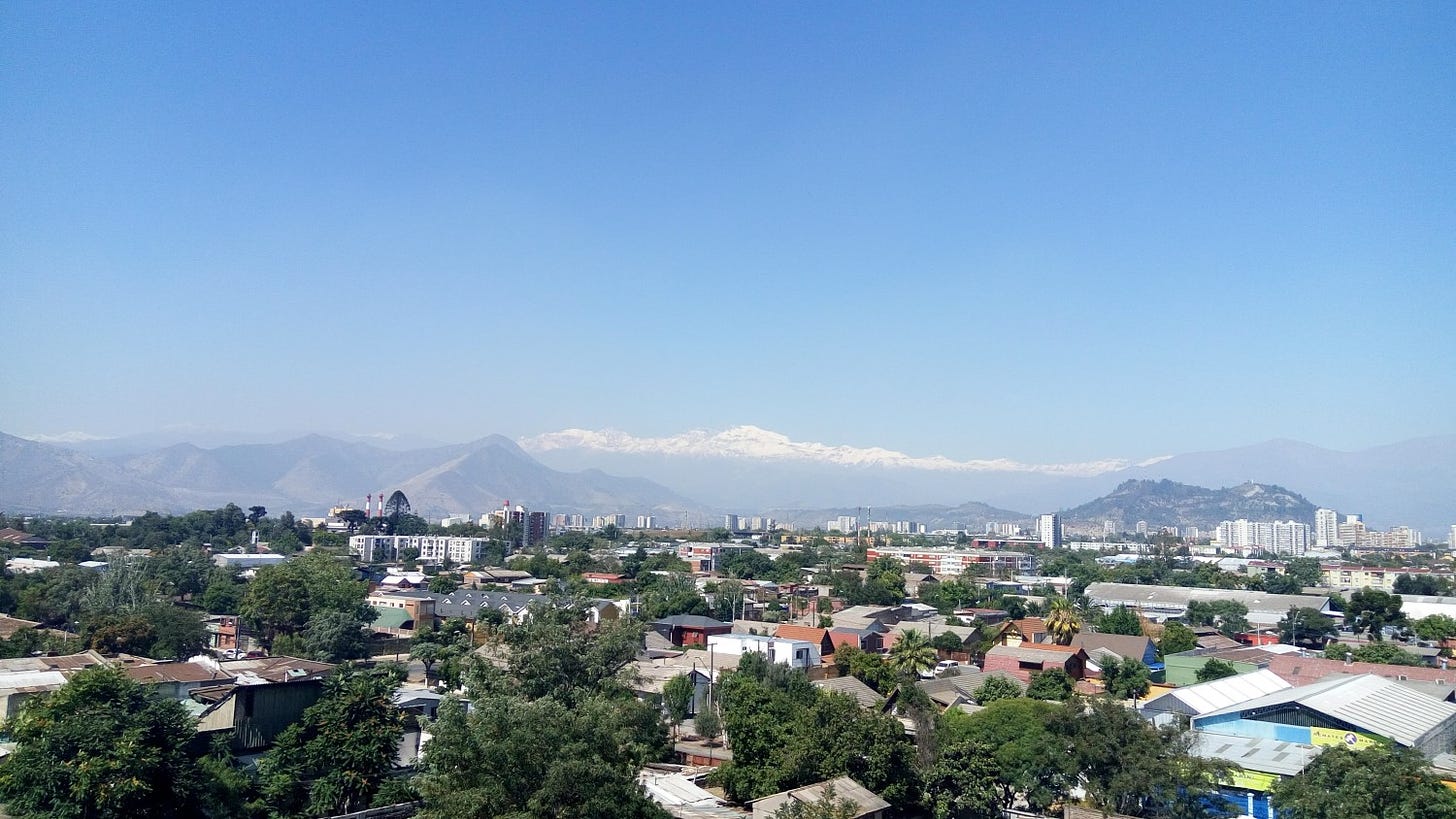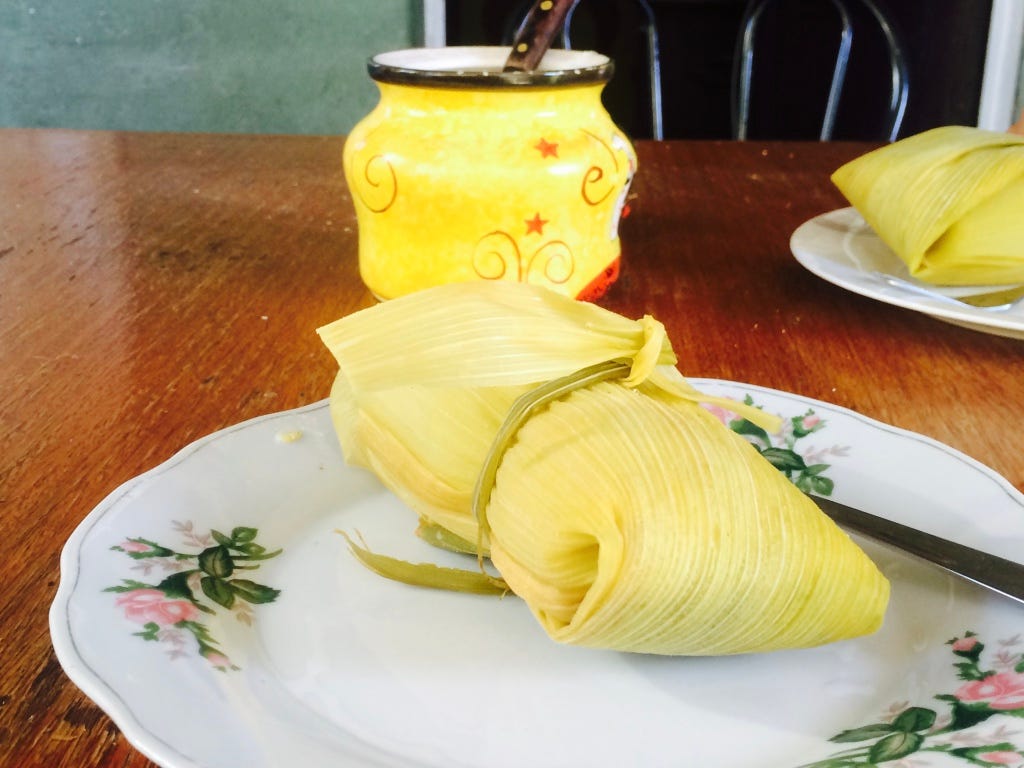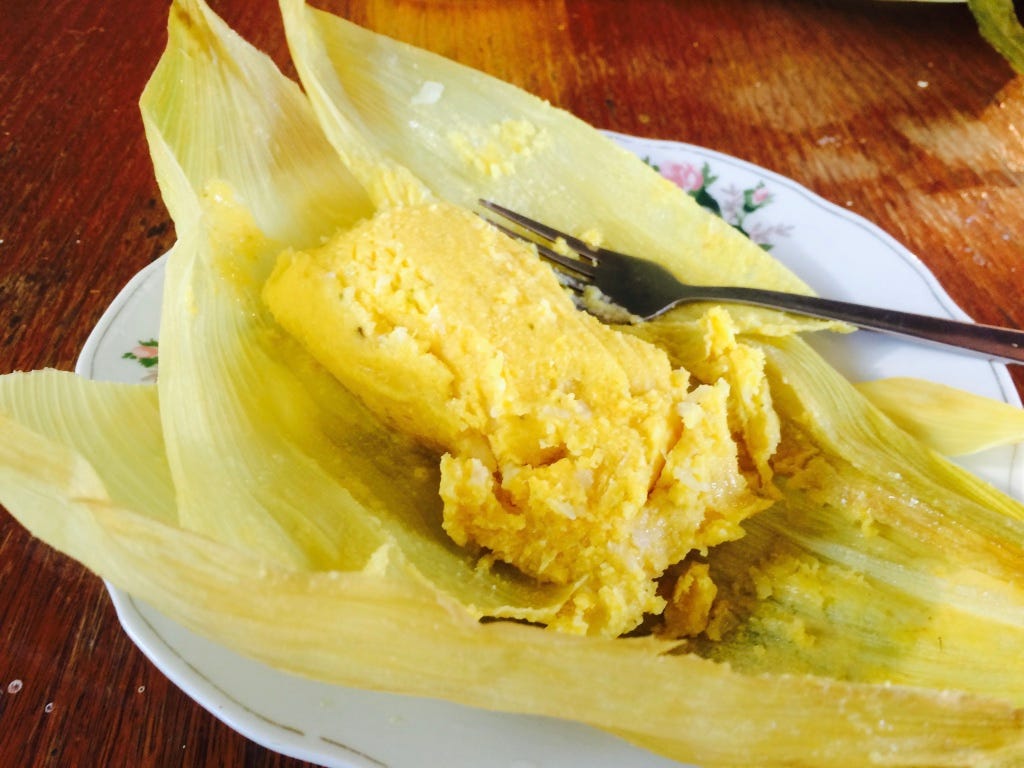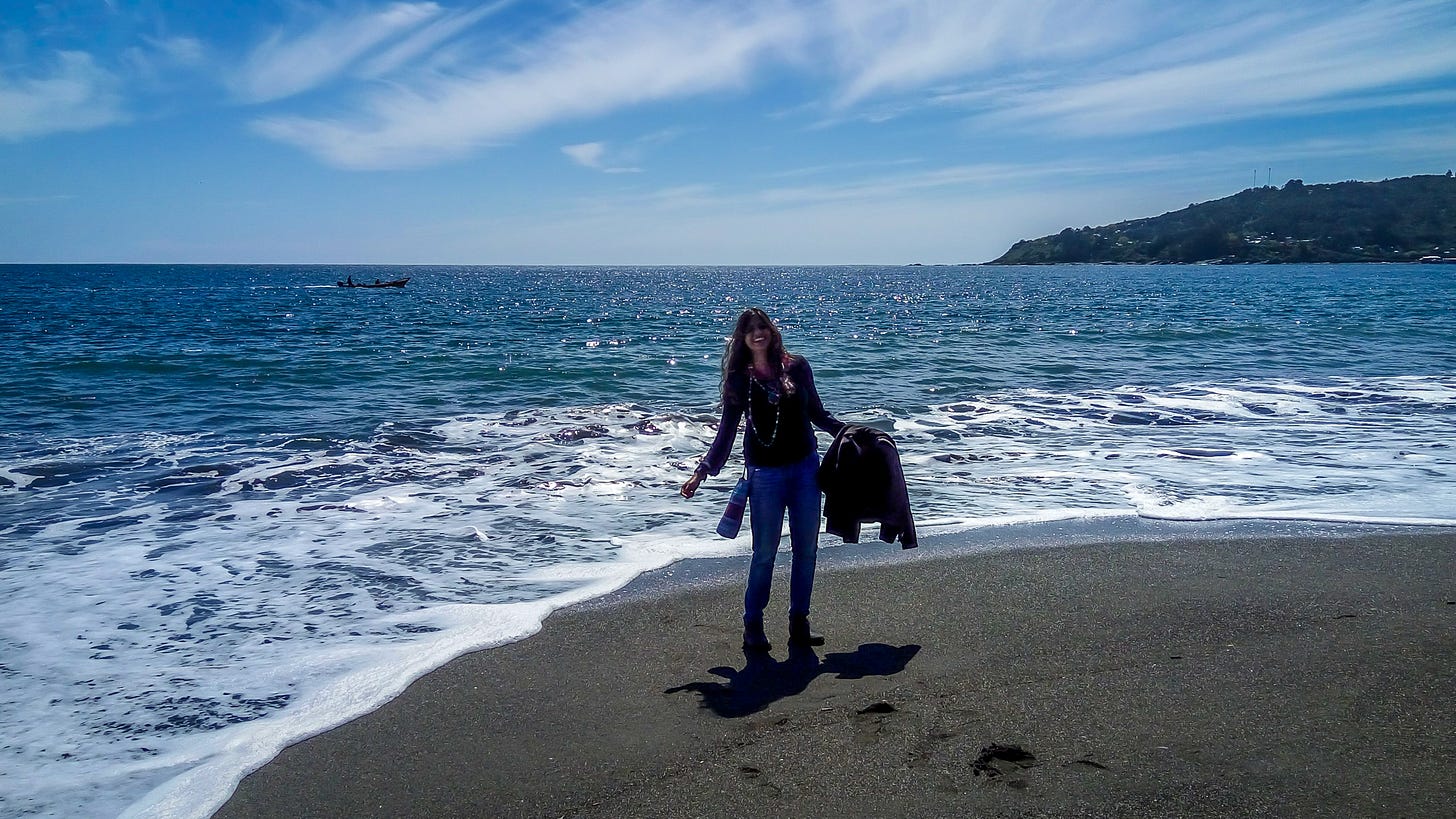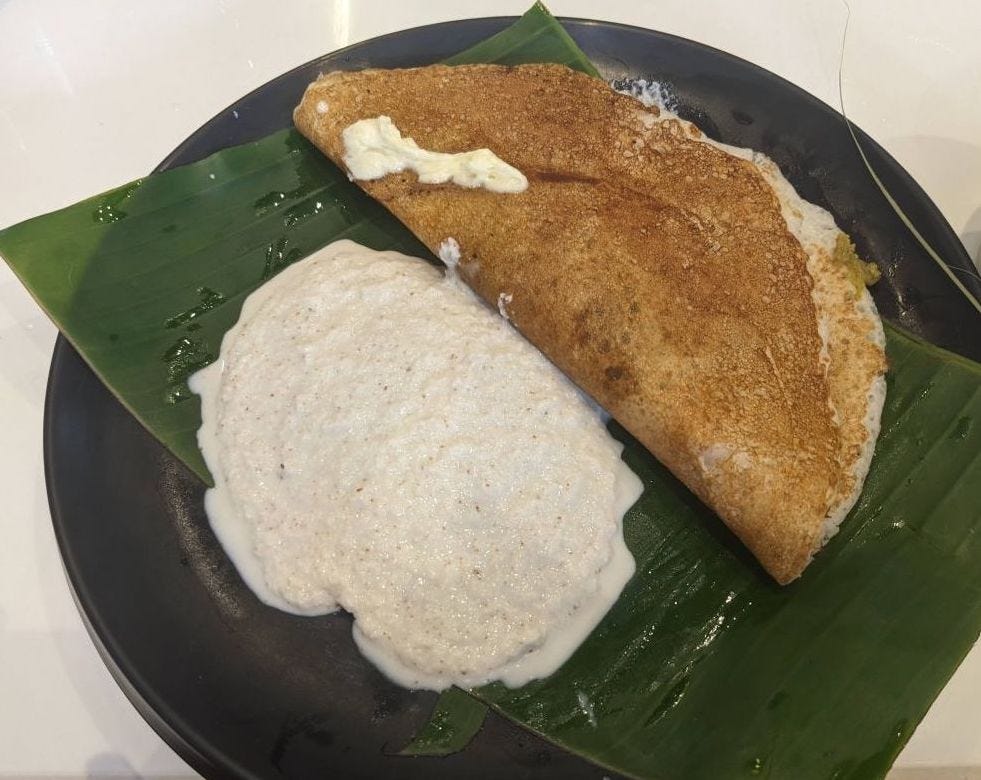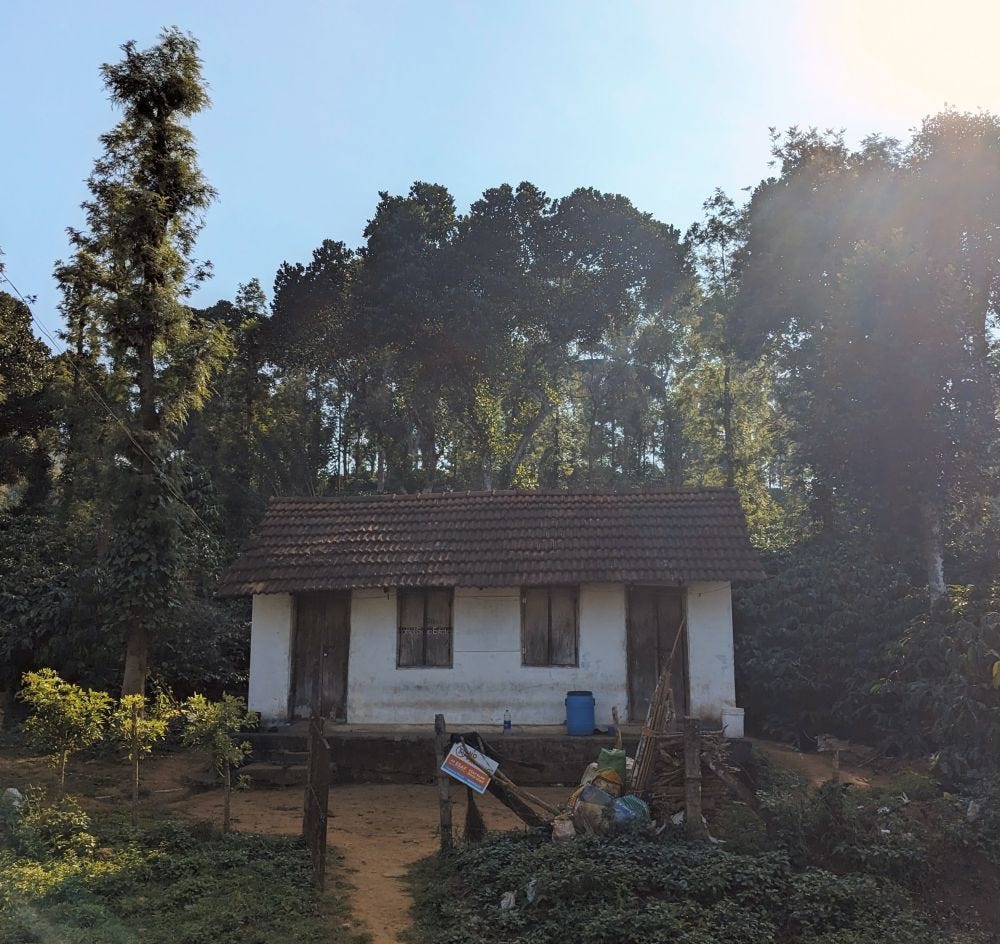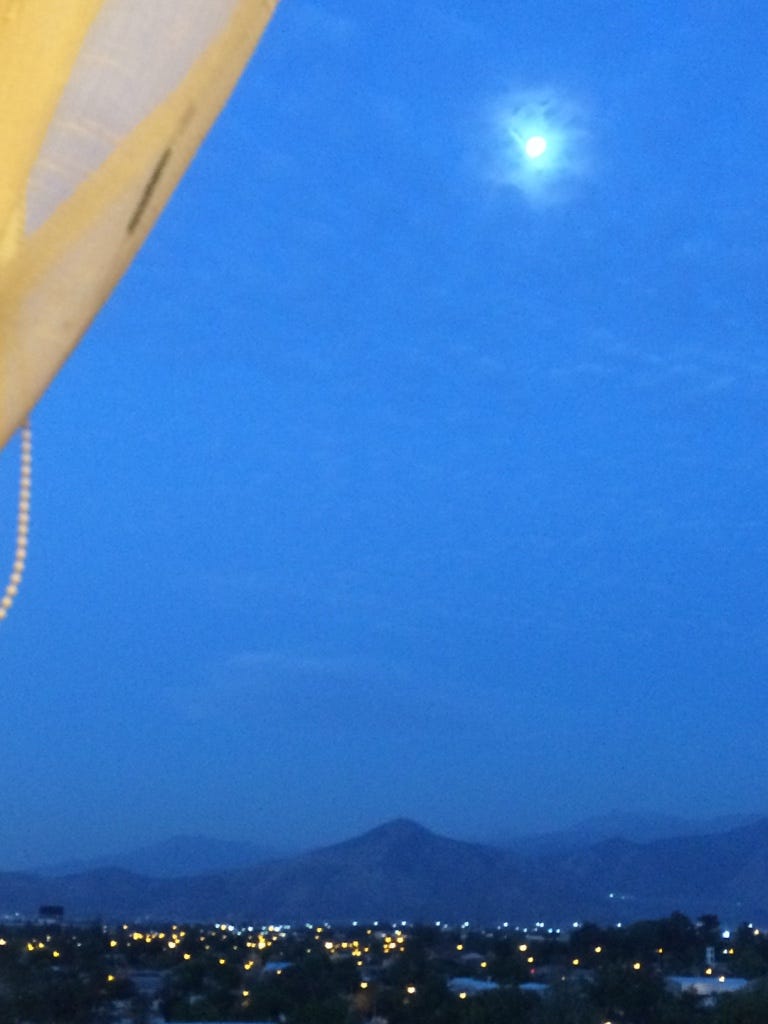the magic of time
seven years since Chile, happy South-American stories, healing and forgiving, travel tales from Karnataka and Kerala, our passing on this earth, and enjoyable reads
Dear Reader,
Thank you for being here. I hope your week went well.
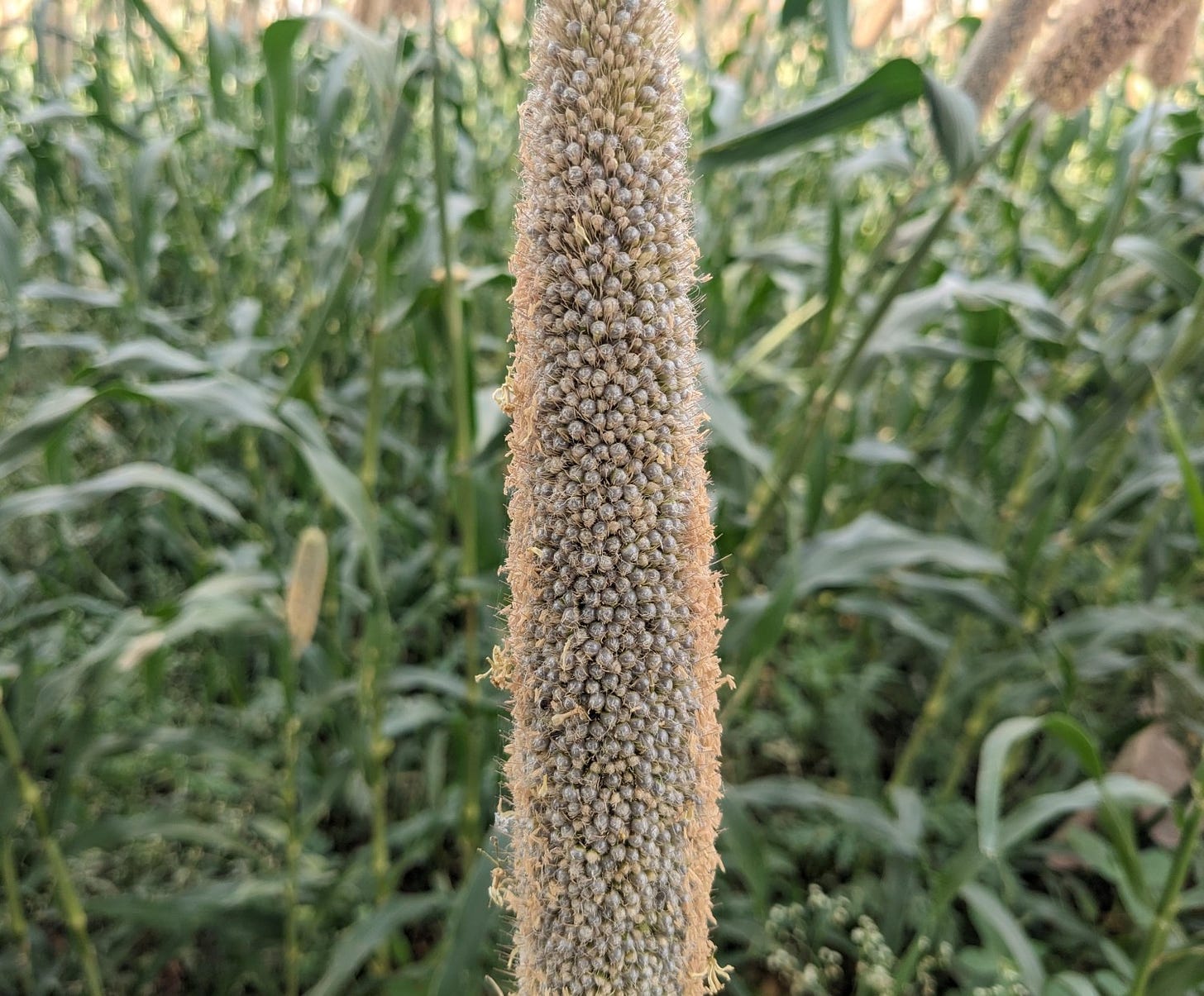
I’m still here at my parent’s home in North India.
It’s a bit weird to be here around this time. Seven years ago, today, that’s on 24th April, I returned to India from from my favorite country in the world, Chile.
I had been in Chile for six months, and spent another three traveling in Peru and Bolivia. I was sad and depressed to come back to India.
I wanted to stay in South America. But my parents were forcing me to return, yelling at me on every phone call, asking when would I marry, that I had left my family behind, and they were falling ill because of me. I was about to turn thirty that year. I had quit my job before leaving for South America. In Chile, I had started working on different blogs, determined to make writing my full-time occupation.
I was having a great time in the free-spirited, jaunty continent of South America and of which I want to share a story.
***
My Airbnb hosts in Santiago, Victor and Marisol, invited me to a celebration at the house of Marisol’s mother. I had met the gregarious mother who told me she remarried after her first husband’s death immediately the moment she met me, who laughed quickly, and who showed me the shops around the apartment in that deep sun on a lonely afternoon.
Marisol’s family was celebrating the homecoming of Marisol’s sister. The sister had shifted with her mother from the desert town of Arica up in the Northest corner of Chile. We were sort of in the middle of the country in its chaotic capital Santiago. Perhaps the sister had been having a tough time on her own. Her husband and two daughters moved along with her.
I liked Victor and Marisol and her mother, and so I accepted the invitation, changed into a black knee-length dress that I wore more often than I realised, and hopped into Victor’s car.
Marisol had told me they would be making humitas, corn leaf packets filled with steamed corn paste. That was how I knew humitas. When we arrived at Marisol’s childhood home sprawled on the ground floor with a sunny open courtyard in between, the golden kernels were already removed from the corn. Marisol’s large mother was hugging the grinding machine, holding onto the iron handle, turning it round and round to grind the kernels. We kissed on the cheeks, as is the custom in Chile. The house smelled of corn, sun, and people.
When I offered to help and took the iron handle in my hand, the mother said, “You aren’t used to it. You won’t be able to do it. You’ll get tired.” She laughed and with beads of sweat on her forehead continued to grind, Marisol right behind her, the kind woman now looking little in front of her big Pollyanna of a mother. The mother and daughter smiled at me while both ground kilos of kernels with their hands.
Tens of guests—nieces and nephews and their partners and children and uncles and friends—arrived. I was introduced to everyone. We all greeted each other by kissing on the cheek and all of us were handed chilled bottles of beer, which we drank around a long table or while peeking in at the corn from here or there.
In the kitchen, the mother put big pots of corn paste onto the stove to boil it. Standing behind her, I watched the cauldrons from above her thick, sweaty shoulder, clutching my frosty beer and making a joke which I don’t remember now but which made the hearty woman giggle. All of us then packed the boiled corn into the corn leaves, the mother and daughters showing me how much of the yellowy hot paste to put in the pale-green leaves and how to fold them upon the mixture.
There was so much to do that most of the family and friends, at least most of the women, were on their toes passing on plates of ground corn, putting the humitas to steam, and laughing when mine opened while steaming.
“This one was yours,” the mother pointed as we watched the packet of corn leaves from which a little golden corn paste oozed out. She laughed, gurgling as she always did. I didn’t mind. She didn’t seem to mean any ill to me.
That day I understood why Chileans love minga. They described Minga to me as an activity for which friends, family, and neighbors come together. All of them contribute, work, join hands, and, voila, the thing is done. I went to many mingas in Chile: steaming shellfish with a large family in a hole in the ground or baking bread together. Into the get-together, there would be much laughter, fun, frolic, banter, and—a feeling of togetherness, of belonging, almost palpable.
Though I’ve happy memories of the evenings or afternoons I spent drinking wine and beer with my Chilean friends, I can’t recall much specifics of those times. But I have vivid memories from the hot humita day, a family minga. The way Marisol was looking at me while grinding corn when she had just told me I would get tired, her mother and I standing shoulder to shoulder staring at the pot, and the complete abandonment with which everyone danced under the starry Santiago sky around a bonfire, especially the top-skirt clad chubby mother of two little children, shaking her hips and shoulders as if there would be no tomorrow—all these scenes have remained with me.
The feeling of being part of a family even for a day and the feeling of being accepted by people very different from my own have also remained with me.
When two teenage boys snatched my smartphone from me on a running bus in Santiago, Victor not only gave me his phone until I could buy a new one but also let me use the SIM card inside. Marisol said I was too beautiful and noticeable but what happened to me could have happened to anyone. Santiago has a lot of poor people who live by taking from others. Victor said. When it was time to check out, he dropped me off at the hostel, didn’t ask for his phone, and offered to find me Chilean men I could marry and present to my family. The couple knew I was looking for jobs in Chile and wanted to stay, and my family was, let's just say, angry at me for not returning.
A few days later, I called him to a metro station, returned his phone, and told him I would travel around South America before deciding if I would return to India or stay.
I had been applying for teaching jobs at local English centres and schools but hadn’t had any luck. Some English schools ignored my application, and, those who considered, first wanted to hear me speak.
“Your accent isn’t thick like of most Indians. Okay, come for the interview.” The Australian owner of a private English institute told me. But at his online school, I had to sit in front of the computer for long hours for a low wage. At many other English centres, I would have to travel to far-off places in Santiago to earn pennies.
The school jobs, most of which I couldn’t even take without a teaching degree, paid less, too. I ran between the Ministry of Education in Chile, the Indian embassy, and other ministries and important-sounding offices. Not only did I need all my certificates in original and attested from the corresponding Indian institutions—which my parents wouldn’t have sent me, but my Chilean visa could take months to come, if it did, at all. But should I try so hard for jobs that didn’t even match up to my qualifications? And Santiago wasn’t the best of the places to live.
Like the lanes around Victor’s house, so many residential streets of Santiago would be empty too. Even tiny grocery shops operated from behind iron railings, like the liquor shops in Uttar Pradesh, my home state, all day. One sunny afternoon while I was walking to a shop, a young guy stalked me and whistled. I couldn’t tell if he was trying to flirt or was interested in my purse. My Chilean friends had asked me to be extra careful in buses, metros, and markets. The city didn't feel safe at all.
I imagined living in Santiago, earning little, shuttling between unknown, dangerous neighbourhoods of the city, and fighting my family. It didn’t look like a good life.
I didn’t compromise.
I returned to India, even though the coming back saddened me deeply.
***
Today I have a life partner better than I could have imagined, I write full-time, and we have been on the road for three years and three months.
Ironical that seven years ago at this time, I was unhappy and angry at my parents, barely able to breathe in their house. Now, I have returned to them voluntarily, to be with them for a bit and to be in my childhood home that’s still a place of solace for me.
I know time can change much, but I’m stunned to realise how time can heal us, make us forgive and forget, and bring us the things we need exactly if we keep doing us.
I will not think about the future or worry about tomorrow; I know that with consistent effort, time will bring me what I need and what is mine.
Do you want to be somewhere else from where you are now? Why?
For this week’s letter,
Some of my writing,
quotes I love,
things to read,
things to watch,
and
travel tips.
Article of the Week,
Slow Travels in Mysore
My account of slow travels in Mysore when my partner and I went around the city for a week, exploring its history and nature and working and eating dosas.
Read the narrative now. Or Pocket it for later.
Life in a Tea, Coffee, and Betel Nut Village in Wayanad (Kerala): Day 2, Episode 2
A narrative of a regular day of two travelers in a tea, coffee, and betel nut village in Wayanad (Kerala). We cook, shop, write, and hike to a viewpoint to understand how our patch of land and we in it are placed.
Please note—You can find the first piece of this series here: Finding a Home in a Village in Wayanad (Kerala): Day 1, Episode 1.
Read the story now. Or Pocket the piece for later.
Quotes I Love
“One of the gifts of being a writer is that it gives you an excuse to do things, to go places and explore. Another is that writing motivates you to look closely at life, at life as it lurches by and tramps around.”
Anne Lamott
Our passing through this earth is so absurd and fleeting, that it calms me to know that I have been authentic, that I have managed to be more like myself as much as I could.
Frida Khalo
“Meaning and morality of One's life come from within oneself. Healthy, strong individuals seek self expansion by experimenting and by living dangerously.
Life consists of an infinite number of possibilities and the healthy person explores as many of them as possible. Religions that teach pity, self-contempt, humility, self-restraint and guilt are incorrect.
The good life is ever changing, challenging, devoid of regret, intense, creative and risky.”
Friedrich Nietzsche
Others may seem to be above a richer soil, or under a more merciful sky, but we all have the same—and what we have is the best.
Yours Truly
What I’ve Been Reading
I’ve been reading short stories, books, articles, and so much more. I can’t possibly list all what I have read in the past week so I’m putting down the things I found most relevant and worthwhile.
I set upon reading newsletters of writers here on Substack and read many pieces on The Deeper Call by Ashley Neese—The author describes her newsletter as: “Bi-weekly personal essays exploring aliveness, vulnerability, and motherhood from a PhD dropout and author of Permission to Rest.” For me, her pieces, such as Learning to Trust, I left Instagram, and Devotion to Tenderness were refreshingly honest, coming from a deep heartfelt place of struggle, hope, and sincerity, and relatable. The narrations of Ashelys’ days and nights when she tries to work, write, raise babies, care for her family, and do the other million of things we humans have to do were entertaining too.
I suggest this Substack newsletter to those who want to be kinder to themselves in this one beautiful life.
As I’ve been waking up at 5 or 6 am to write, I found the Mason Currey’s Writeup ‘Petrarch got up every morning at midnight’ relieving and encouraging
Here’s what Mason says,
Last week, I was researching the 14th-century Italian poet and scholar Francesco Petrarca—known to English speakers as Petrarch—and I ran across this passage from a letter (written by petrarca) dated February 22, 1353:
I am well and happy, and I refuse those concerns that make so many unhappy. Here is the routine of my life: I rise at midnight; I go outdoors with the first light; and whether in the fields or in the house I am busy thinking, reading, writing. As much as I can I fend off sleep from my eyes, sloth from my body, distractions from my spirits, torpor from my actions.
Rising at midnight? So 5 or 6 am is not bad at all.
Travels with Charley by John Steinback—Though I think I have shared this book before, too, I had only read parts of it then and have just now completed it. I shared the book when I was half-way through it because it was good. I wanted to, and continue to, recommend Travels With Charley for that feeling of exuberance one gets on the open highway, with miles ahead and miles behind, the countryside and the fields growing nation’s food rolling by, and with nothing on the traveler’s mind but what she sees around her and the matter of going. In some moments when you are one with the road or with a landscape, you experience mindfulness, akin to the one achieved in deep meditation.
Angry River by Ruskin Bond—This thin book is a classic which I re-read this week. The story is of a little girl whose home is taken away by an angry river, but it is also the tale of love, family, nature, food, life’s struggles, and how we hold onto the tiniest bit of straw until the last moment. Enjoyable read to relish any time of the day!
What I’ve Been Watching/Listening
that’s worth mentioning
I have only been watching squirrels, red-whiskered bulbuls, cuckoos, crows, hummingbirds, tailor birds, and monkeys gambol about, forage, and chase each other in my parent’s garden.
And for all adventure lovers!
Sharing a few more pictures from Victor’s and Marisol’s home.
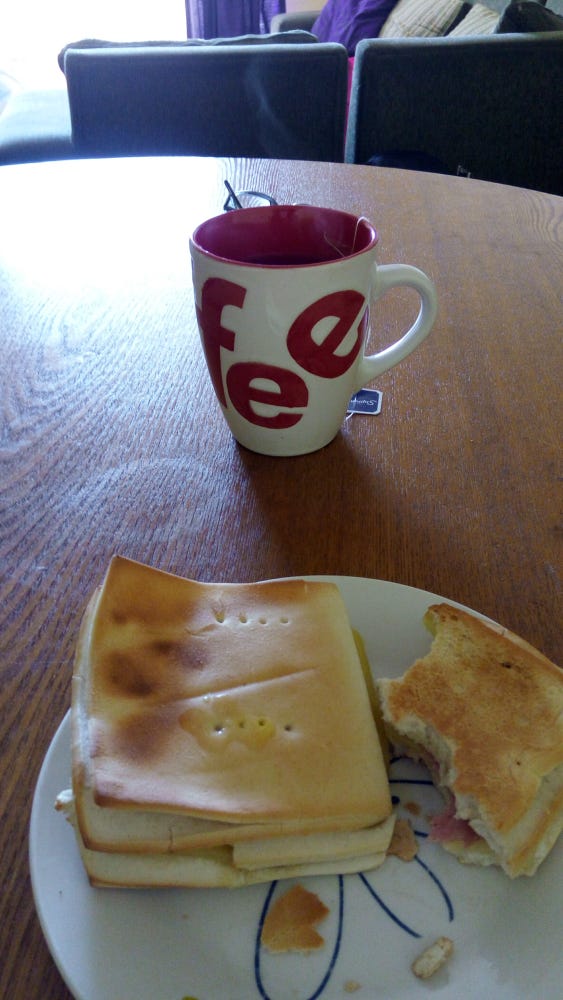
a rough photo of the Santiago city in the night from my room’s window
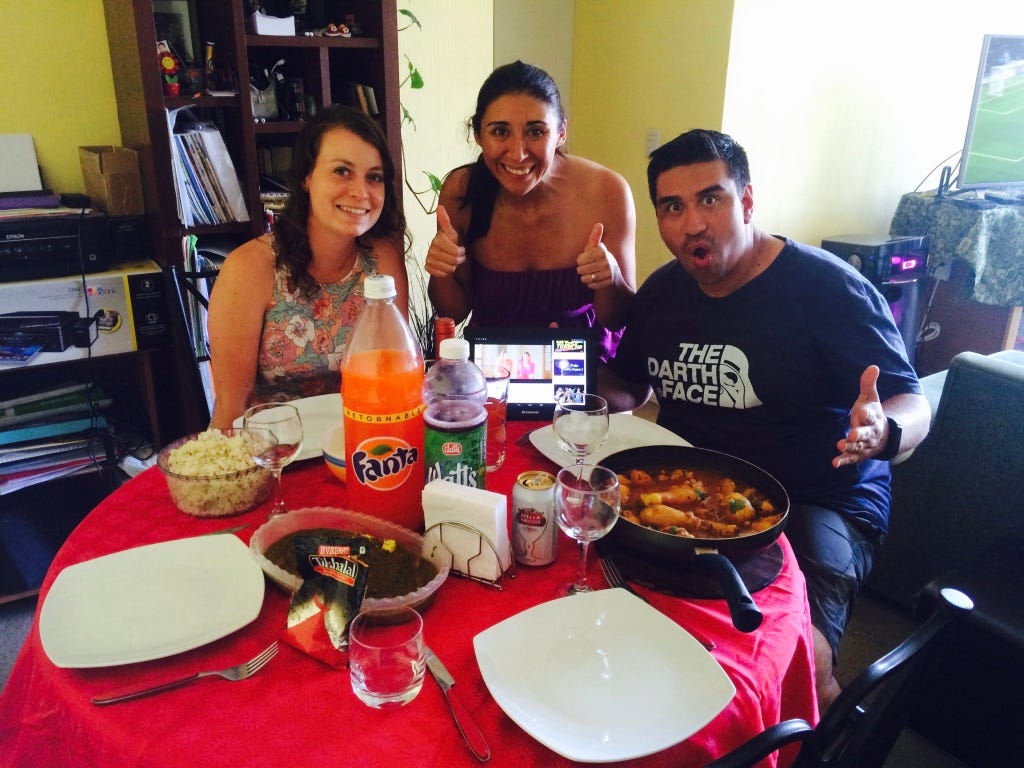
Thank you for reading!
If you loved the newsletter, please forward it to someone you know. Help me reach more people. They can sign up for free here.
I hope you have some sunny memories of good friends to think about too :)
Let me know what you think about this letter. Press reply.
Yours,
Priyanka
Some housekeeping… This email may end up up in the Promotions tab of your inbox. If you don’t find the newsletter during the week, go to your Promotion tab and move this email to your Primary inbox. Looking Inwards letter will be in your inbox every week from then on.




